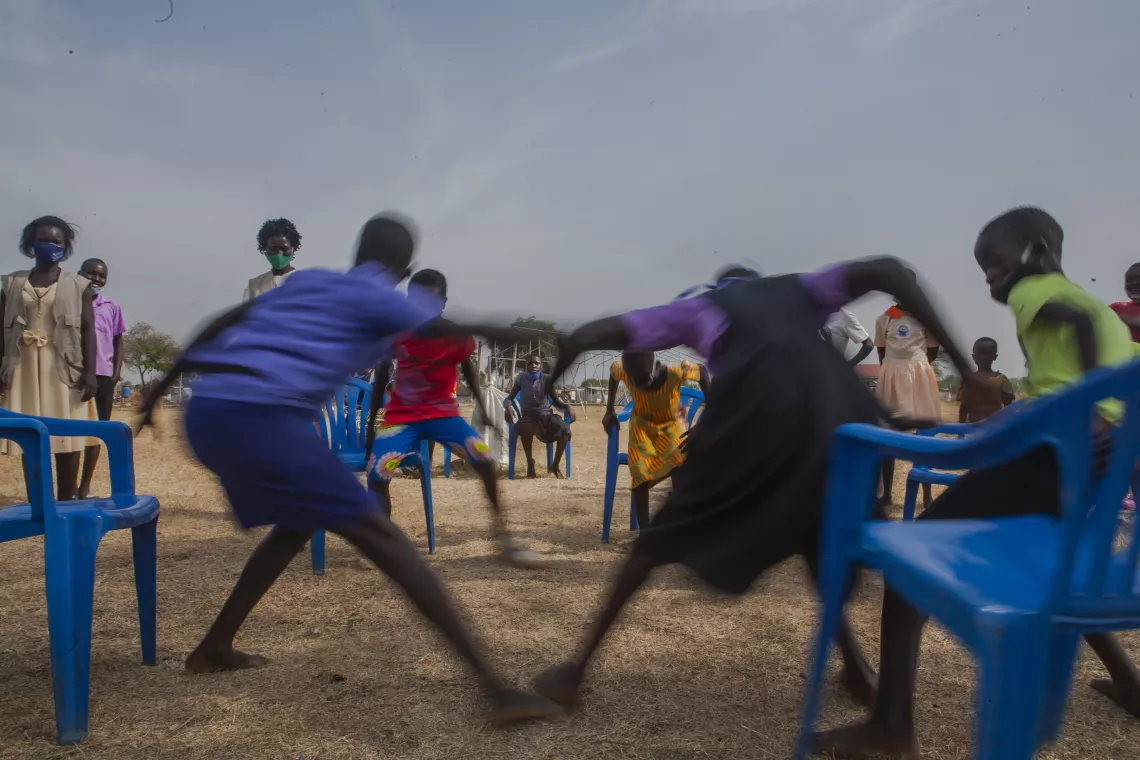UNICEF strengthening psychosocial services in Obongi in Uganda
Children who participate in these activities are said to improve their psychosocial wellbeing and resilience.

When children are separated from their parents and guardians or leave the comfort of their homes and forced to migrate to another area as refugees, they usually face many challenges. Expression of their feelings is sometimes through anger or by keeping away from others, which affects their development.
In Obongi District in the West Nile sub region of Uganda, there are many such children. Obongi is one of the refugee hosting districts in Uganda. Over 1.5 million refugees are hosted in Uganda with 60 per cent children. Some of these children come unaccompanied while others are separated from their parents.
Strengthening child protection services in Obongi is, therefore, paramount. Child friendly spaces have been created where children can learn and play, thanks to UNICEF and the Dutch National Committee for UNICEF that have made this possible through Save the Children.

In Belle 1 Village in Palironya Refugee Settlement, children have gathered in an expansive open field, forming a circle. Music is loudly playing from a portable Bluetooth speaker. There about 20 of them with 19 chairs. As they dance, the disc jockey, a young man with a smartphone stops the music suddenly. Each one of the children must find a chair. Failure to find a chair means elimination to the amusement of others. The cycle continues until there is only one chair left and two children. The one who gets the last chair is crowned champion of the session.
Such activities are held every afternoon in Belle 1 Village at an early childhood development centre. Belle 1 is said to have about 4,000 children. When they aren’t doing the chair dance, they are either playing football, reciting poems or running in gunny sacks, another popular game.
This is part of the TeamUp approach developed by UNICEF Netherlands together with Save the Children and War Child. TeamUp interventions are based on play and movement to establish a sense of security; promote social connectedness; increase self-regulation; and foster a positive outlook on life.
Children who participate in these activities are said to improve their psychosocial wellbeing and resilience.
In Obongi, these activities are implemented by Save the Children Uganda with UNICEF support and funding from the Dutch National Committee for UNICEF.
Obongi is located on the banks of River Nile and without dedicated activities and spaces which are friendly for children, many would end up fishing or in activities that affect their growth. “We have managed to get children to play here, talk to each other and avoid peer groups that may affect them,” explains Celina Modong, the facilitator.
“Instead of going to the disco to dance, we do it here. It is safe here than in a nightclub,” says Irene Juru, a pupil at Itula Primary School.
However, activities aren’t only for children. During the COVID-19 lockdown, facilitators like Modong and parasocial workers went into communities and sensitized the parents and guardians on the dangers of violence against children.
“Parents abandon children largely because of the rampant drug and alcohol abuse in the communities. However, we sensitize them to create an environment that enables the positive wellbeing of their children,” says Pauline Butia, the Obongi District Senior Welfare and Probation Officer.
“Many parents believe that a child should be beaten for every mistake they make. We tell them that they can talk to them instead of administering corporal punishment all the time,” Agnes Sikia, a parasocial worker says. “However, there are cases where parents don’t listen or legally, we can’t handle, these we refer to the police,” adds Richard Weligaku, another parasocial worker.
The sensitization has also been extended to cultural and religious leaders who wield a lot of influence in the communities. “They have platforms that can reach many parents and guardians as they are trusted by the communities. We have engaged them to encourage parents to take the children to school,” adds Richard Aliga Male, the acting Community Development Officer, Itula Sub County in Obongi District.
With social protection issues being handled at all levels, there is no doubt that the children growing up in Obongi will end up living meaningful lives that will enable them to realize their full potential.




